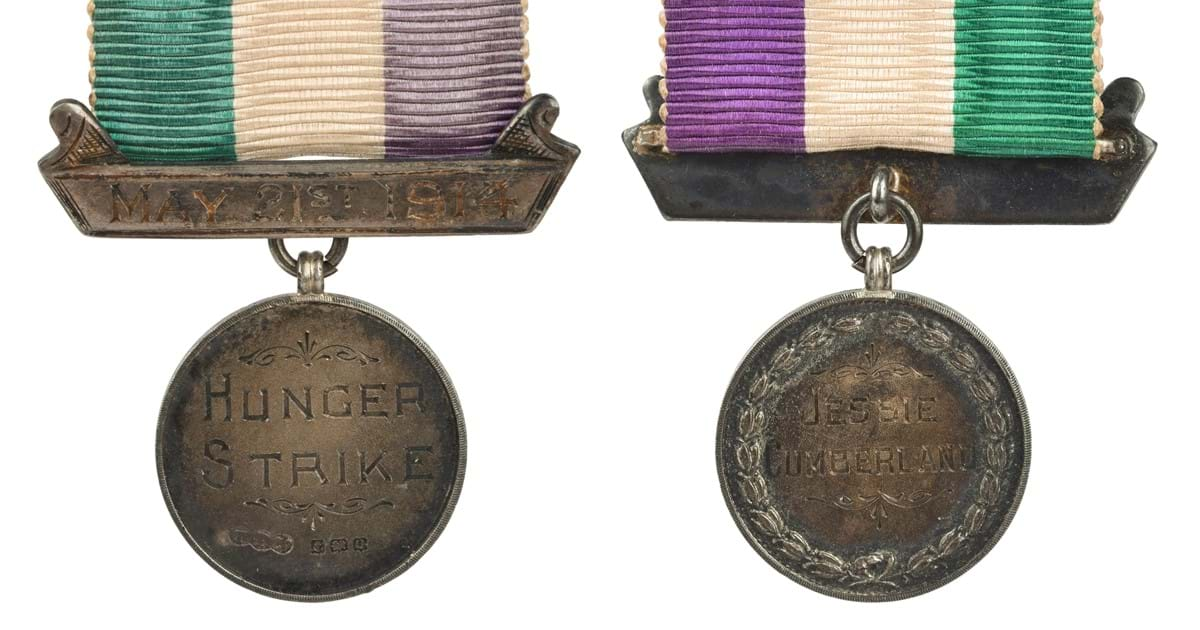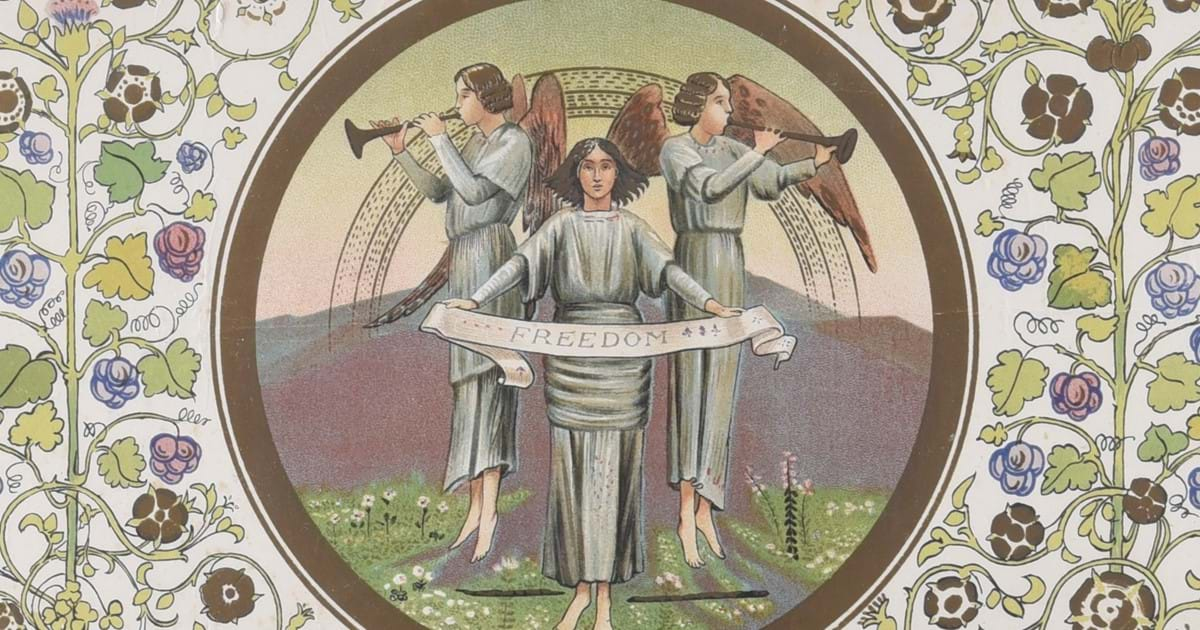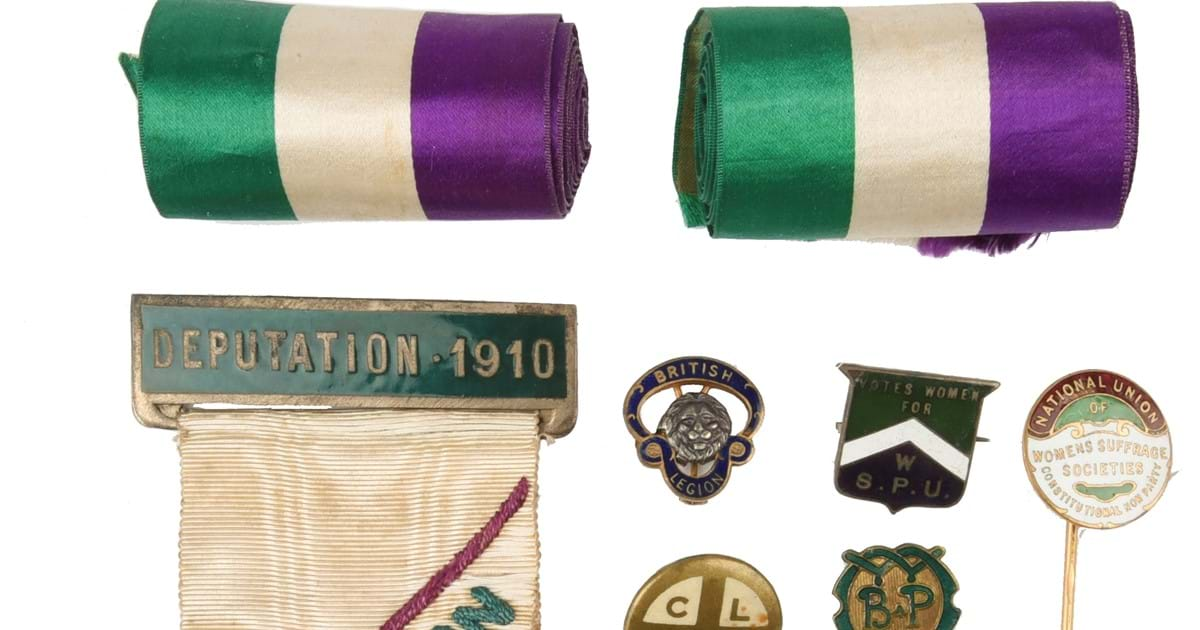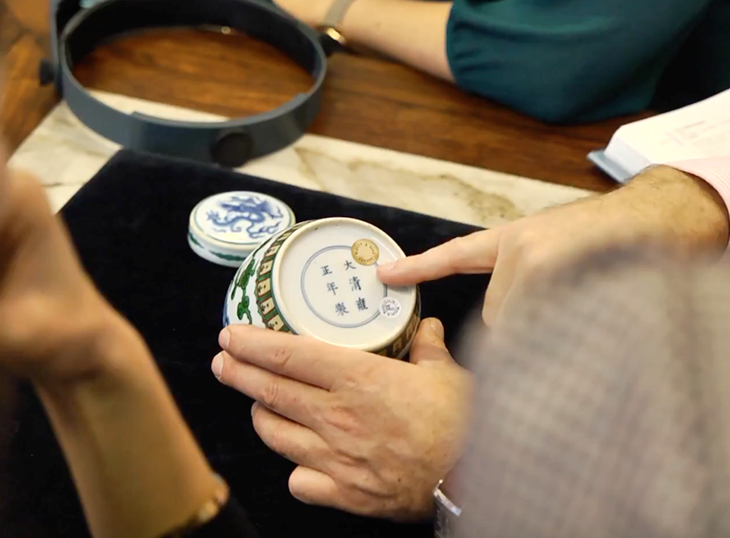Suffragette 'Hunger Strike' Medal
9th May 2023A so-called ‘Hunger Strike’ medal, awarded to suffragettes over a century ago, has sold for £18,270 at auction. (Lot 32).
The medal was awarded to Jessie Landale Cumberland in 1914, not long before the start of the First World War stopped the militant actions of members of the Women’s Social and Political Union. It recognised the tactic of hunger striking among women imprisoned in Holloway (and around the country) after protesting their right to the vote.
Aged 53 at the time of her imprisonment, Cumberland was just three years younger than WSPU leader, Emmeline Pankhurst, and considerably more senior than many of the other women taking part in protests across the country.
Included in the sale was a Deputation ribbon, which Cumberland would have worn at the demonstration outside the Houses of Parliament on 18th November 1910 – a day that became to be known as Black Friday, owing to the violence shown to the 300 strong crowd of women by police and male bystanders. Although she seems to have avoided arrest on that day, Cumberland was arrested in November 1911, probably in relation to the deputation on 21st November, which obscured a new campaign of window breaking.
“Many members of the WSPU were becoming disenchanted with the peaceful protest movement – especially after the treatment meted out on Black Friday – and November 1911 is when the more militant elements of the society took over,” explained Ned Cowell, Medal specialist at Woolley and Wallis. “Women were being promised progress in Parliament, but the withdrawal of the Conciliation Bill (which promised at least some limited voting rights) caused deep frustration.”
The lack of parliamentary progress led to the events of 21st May 1914, when Cumberland was arrested for the last time. A deputation to directly petition King George V was led by Emmeline Pankhurst and saw her arrest, alongside 65 other women and two men. Jessie Cumberland was one of those arrested and sentenced to imprisonment at Holloway, where she undertook the hunger strike that the medal recognises.
“Hunger strikes were practised by women around the country as a way of protesting their unfair treatment compared to other political prisoners,” explained Cowell. “Many women were forcibly fed as a result, in some cases leading to health problems from which they never fully recovered. At 53, Cumberland was not considered a young woman at the time, and she showed great bravery in refusing food and water.”
Unlike her heroine, Emmeline Pankhurst, Cumberland lived to see the passing of the Representation of the People Act in July 1928, which provided electoral equality to women – removing the property ownership and age barriers put in place by the similar Act a decade earlier. She died in Wimbledon in 1935 at the age of 74.
The medal was bought by a private collector in the UK, who bid the lot up from its starting price of £7,000.





